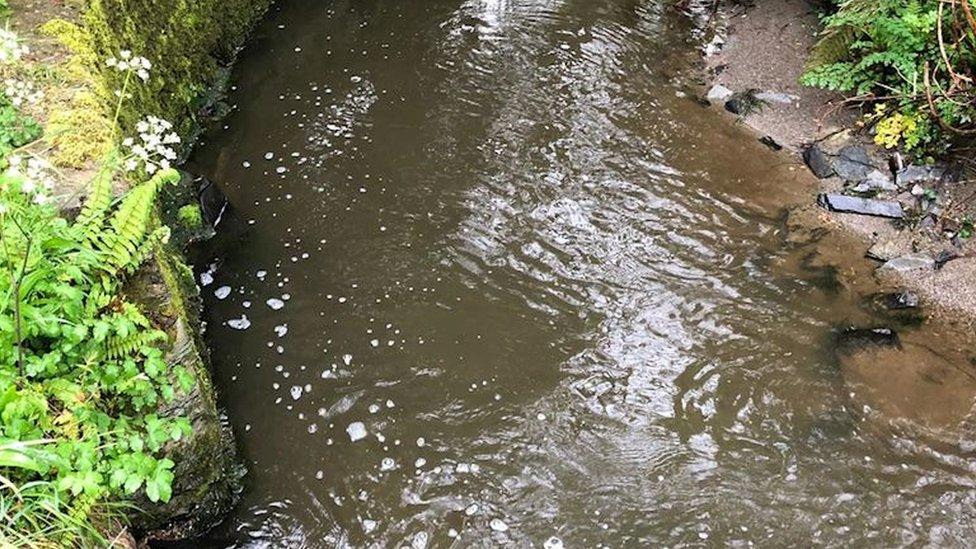River pollution solution trialled on dairy farm in Wales
- Published
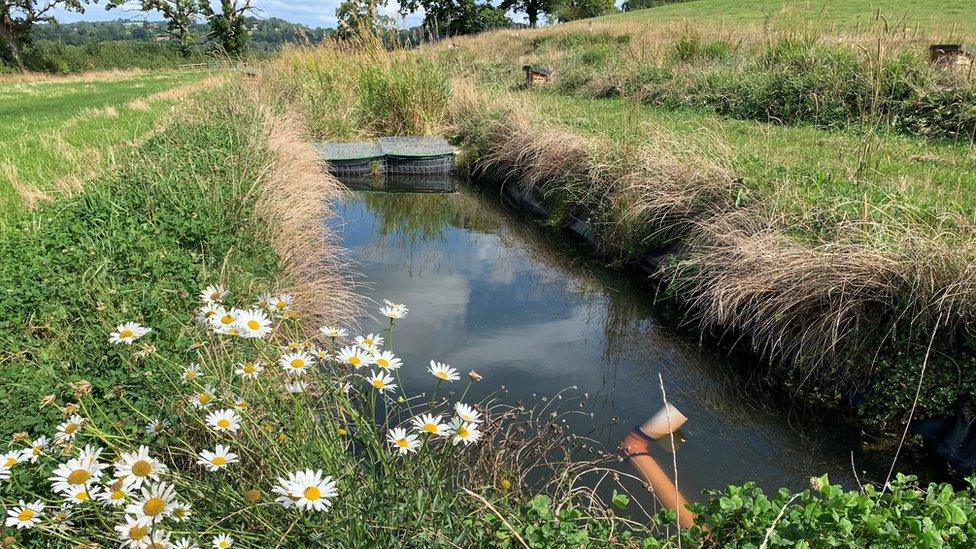
Reed bed channels filter animal slurry to make clean water for cows to drink
A new system to treat animal waste from dairy farms is promising to cut river pollution and costs for farmers.
Coleg Sir Gâr Gelli Aur college farm in Carmarthenshire has been turning slurry into solid agricultural fertiliser that is cheaper than imported counterparts.
The technology also filters the waste to the point where it can become used by the farm as a clean water source.
After five years in development, the process is ready to be rolled out commercially on farms across Wales.
John Owen, from the Tywi farm nutrient partnership, said slurries are difficult and costly to store safely.
They contain phosphates, a pollutant that can kill fish and aquatic life. Early data suggests the process cuts phosphates by 90%.
"It concentrates the liquid slurry nutrients into solid form," he explained. "A lot of farms will be able to export the solid nutrients or use them on their own land as fertilisers."
It could give farmers added income at a time of dramatic increases in the cost of agricultural fertilisers and water shortages.
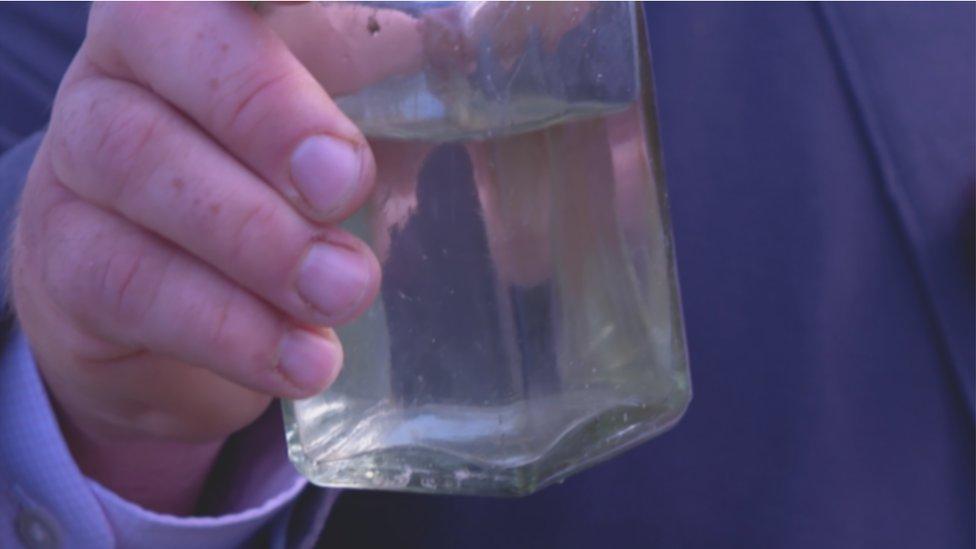
Water extracted from slurry is being tested as potable water for cows
It is even being tested as a possible drinking source for livestock.
The process sees the remaining waste filtered through a series of reed bed ditches, leaving water now being used to wash down yards and clean equipment.
"[The process] purifies the water into a quality clean enough for cows to drink," Mr Owen said.
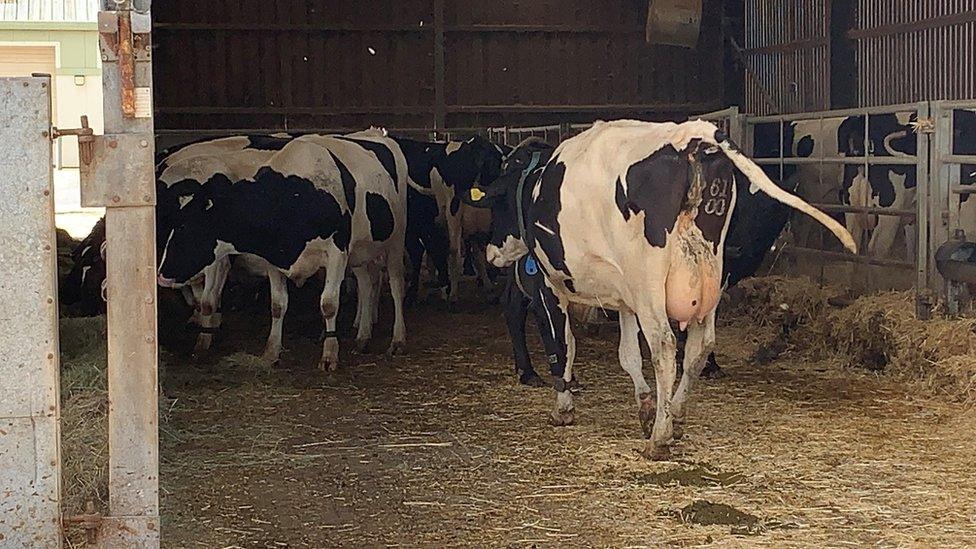
Waste from cows at Gelli Aur college farm is being turning into solid fertiliser and clean water
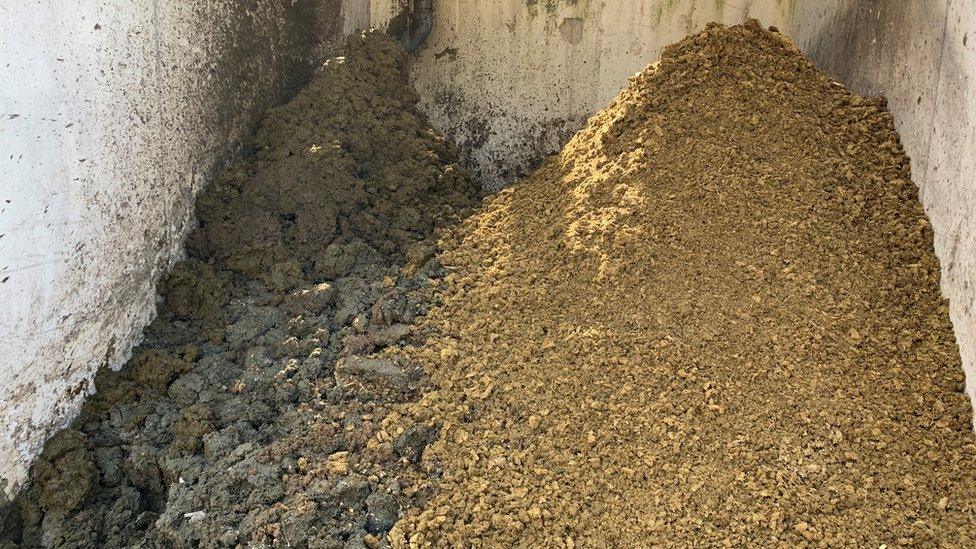
Part processed slurry, which can be used as fertiliser.
The development team was supported by Welsh government grants, European funding and a range of commercial companies.
Mr Owen said the system was now up and running on Gelli Aur college farm, near Llandeilo, and could be rolled out on other farms at any time.
"Our commercial partners are already talking to a number of farmers about implementing the process," Mr Owen said.
"But we also want to explore the possibility of localised treatment hubs so not only the medium to large scale farmers could take advantage, but some of the smaller farms as well."
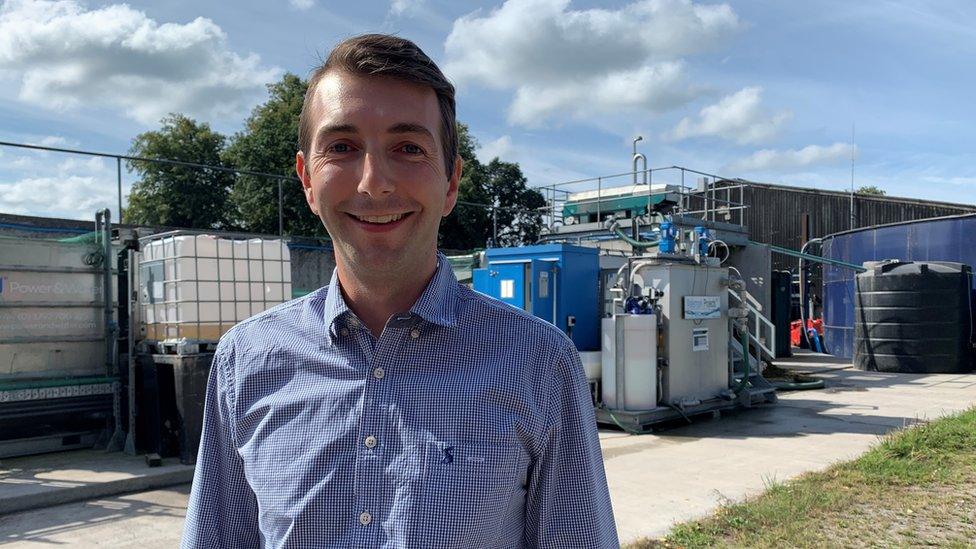
Marc Williams from Natural Resources Wales says the project is extremely exciting
Marc Williams, an agricultural policy adviser for Natural Resources Wales, said the Welsh government agency was proud to be a partner of the project.
"Slurry is a pollutant in our water courses which, if it is handled incorrectly, can have devastating effects on the river quality," Mr Williams said.
"It can cause significant fish kills."
There were 167 agricultural pollution incidents in Wales last year, he said, with the majority coming from the dairy sector.
He called the process extremely exciting, reducing the overall volume of slurry, removing the water contained in the slurry and using the nutrients efficiently.
Farmers are invited to an open day at the Gelli Aur campus on 15 September to see the new system in action.
- Published8 August 2021
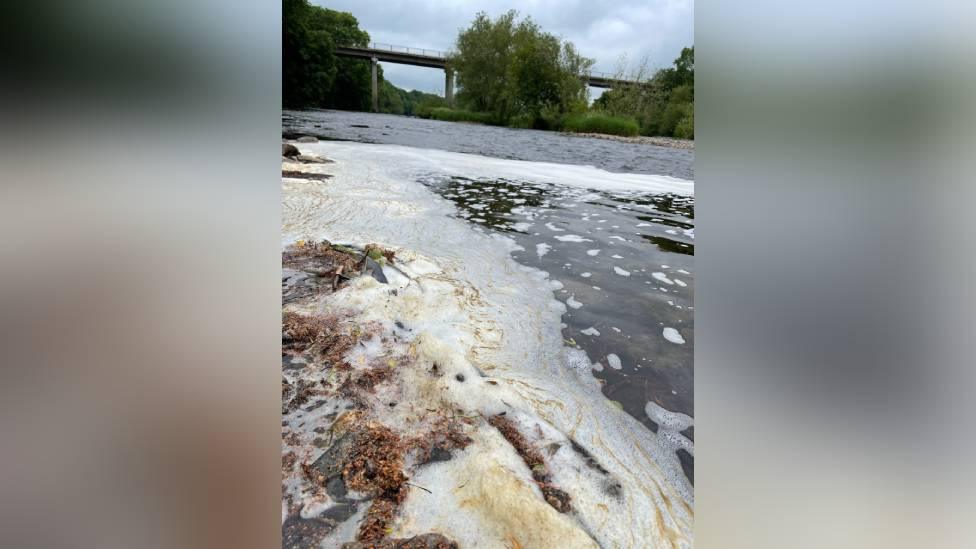
- Published3 March 2021
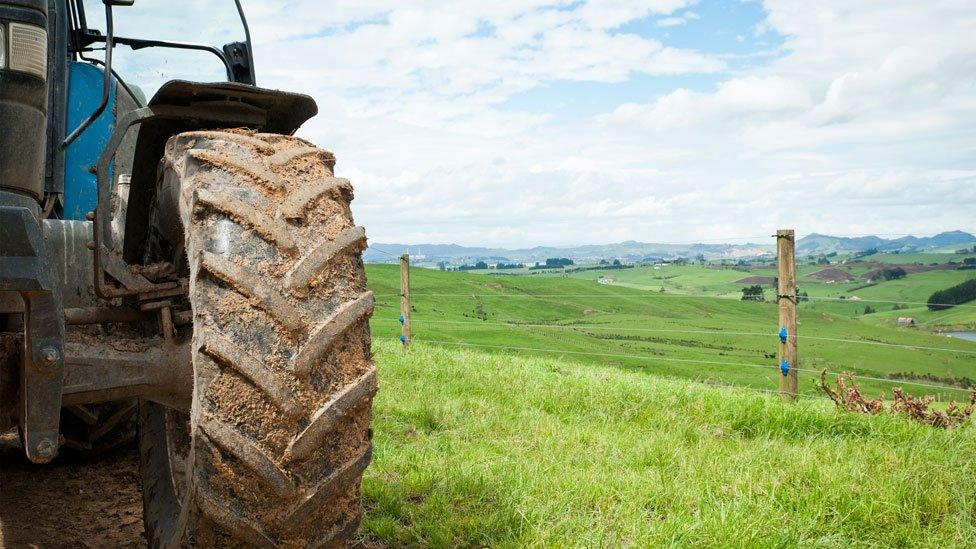
- Published25 April 2019
